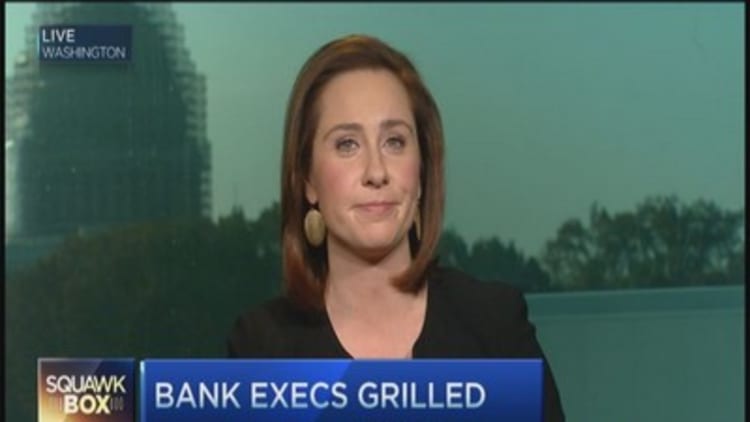
Federal Reserve Board Governor Daniel Tarullo argued Friday that financial-firm compliance enforcement hasn't been stiff enough and that tougher action on the part of the Fed and other regulators was likely needed.
"The accumulation of violations, investigations, and in many cases, I think, acknowledgement of violations" in a variety of areas, Tarullo said during the second day of a tense two-day hearing on U.S. bank commodity activities.
The recent trouble in markets for interest rates, currencies, mortgages, and commodities, "suggests that in general, the compliance, procedures, mechanisms, expectations, within firms for abiding by laws ... are not adequate in many cases," he said. The Fed, Tarullo added, is focused on "how to assure" that robust enough monitoring is in place.
Tarullo also said he was concerned that there were "gaps," or "lacunae" in parts of some banks over which no particular regulator—neither the Fed, the Commodity Futures Trading Commission, the Securities Exchange Commission, nor any other—had oversight.
Read MoreFed to issue new bank, commodity rules
The Fed governor's comments came on the second day of a hearing convened by Sen. Carl Levin as part of a two-year investigation into bank commodity activities by his Permanent Subcommittee on Investigations.
Read MoreUnder fire in probe, Goldman makes move
At issue Thursday were questions of whether Goldman Sachs, in Levin's words, manipulated metal-market regulations in its handling of an aluminum storage business, as well as whether JPMorgan Chase had underplayed the capital risks posed by its commodity holdings over the years. Both banks have defended their behavior and denied misconduct.
In prepared remarks given during Friday's hearing, which lasted about three hours, Tarullo said the Fed was actively considering a handful of measures to intensify the central bank's oversight of bank commodity activities, including toughening capital measures and reassessing merchant-bank commodity holdings to ensure that they are "truly passive."


